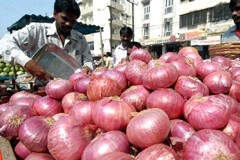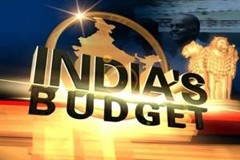Indian Budget 2013
Finance minister shows no love for food makers this year

The Indian finance minister, P Chidambaram, stood up in the Indian Parliament at 11 am on the last day of February to present one of the most eagerly anticipated budgets of our time. And like so many before it, Budget 2013 disappointed.
The last time I wrote here, I looked at how the food and beverage industry has been demanding lower taxes and excise duties. My prediction, if you didn’t read it, was that the finance minister would be loathe to do any such thing. A widening deficit and an election year would deter him from any such favourable action towards the industry.
And that’s just what happened. In fact, even before the minister got into the nitty gritty of the budget, he made clear that the current account deficit is a worry, and something that would determine the direction of his economic measures.
As expected, the industry’s demand for the government to reduce CENVAT on processed food products by almost half–from 12% to 6%–didn’t even given a mention. Our prediction was that it would be hiked to 14%, but thankfully for all, the minister did not go in that direction either.
The second major demand by the food processors has been that the excise duty on food processing equipment also be reduced from 12% to 6% in order to decrease costs and increase production in the coming year.
No love there either.
Instead the Budget introduced a hike in the surcharge paid by domestic companies earning more than Rs10 crore (US$1.8m) from 5% to 10%, while for foreign companies, this has been increased from 2% to 5%.
Say bye-bye to a better bottom line.
And then there was more–much more.
My prediction had the finance minister tinkering with income tax slabs to put more money in the hands of people in order to give the momentary kick in consumption that the industry so desperately desires.
Not only he did not introduce any relief for middle-class tax payers–the very segment food and beverage processors target–what we got was a 10% surcharge on individuals who earn more than Rs1 crore (US$180,000).
While in practice, that should not affect the industry, I think some makers and importers of very high-end, imported foods might feel the pinch. But then both are in a tiny minority.
At the other end of things, the minister also gave Rs10,000 crore (US$1.8bn) for the National Food Security Bill that promises monthly entitlement of 5kg of foodgrains per person at subsidised rates. And when I say subsidised, I really mean almost free.
This bill will eventually cover 67% of the country’s population, most of whom reside in rural India, so we are likely to see an increase in consumption of other food products within this demographic as they will save on their basic food grain costs.
That and the various other rural schemes that government has launched for the poor and the rural only point to one thing: food and beverage companies better be ready to serve this coming rise in rural demand.
Have your say: Do you agree with Ankush? Let us know in the comments below.











